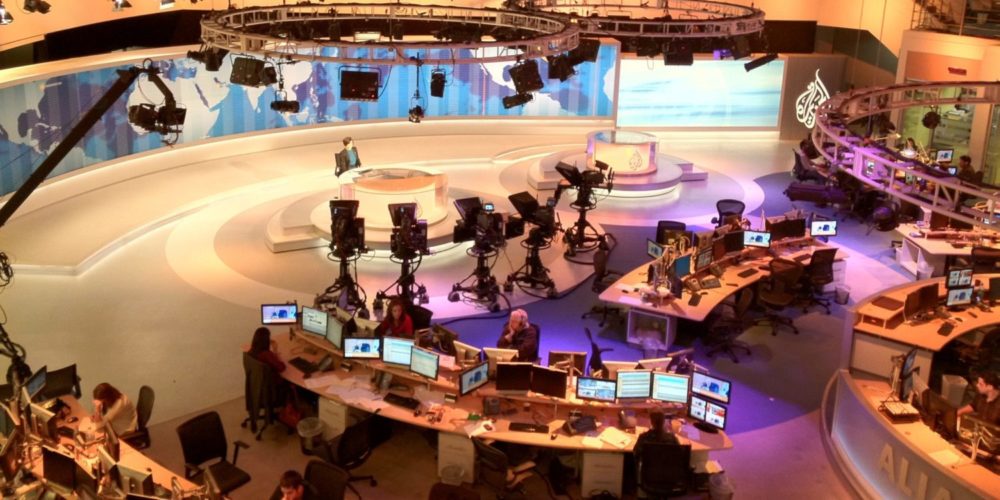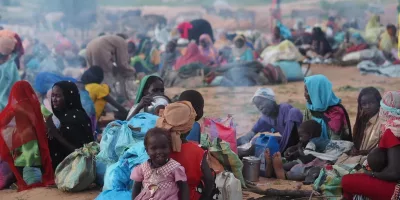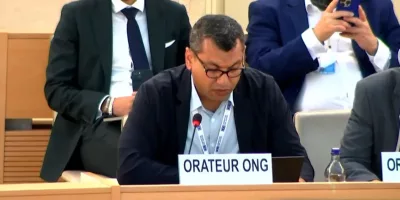As part of its continuous success in bringing the voices of the oppressed to UN mechanisms in order to work for their redress and lift the injustice against them, the Committee for Justice has been able to obtain an opinion from the Working Group on Arbitrary Detention at the United Nations regarding the situation of detained Egyptian journalists working for Al Jazeera news channel: Hisham Abdel Aziz Gharib and Bahaa El Din Ibrahim Neamat El Sayed.
CFJ explained that the UN opinion was based on the complaint submitted about human rights violations and flawed judicial procedures that violate the internationally recognized rules of fair trial, which both Gharib and Sayed were subjected to during their prolonged detention. It pointed out that this step came as part of its tireless quest to end the injustice of the victims, prevent human rights violations against citizens in Egypt, and fight against impunity of the culprits, through CFJ’s UN communications team.
CFJ had mentioned in its complaint that Gharib, an Egyptian citizen born in 1977, who is married and father of three children, worked as a journalist and producer for Al Jazeera in Doha. He was detained on 20 June 2019.
Sayed, another journalist, is an Egyptian citizen born in 1976. He was living in Giza, married with two children, and worked as a producer for Al-Jazeera and Nile TV channels, and a member of the International Press Institute. He was arrested on February 22, 2020, while trying to return to Doha through Burj el-Arab International Airport. The two cases have witnessed many flagrant violations of their human and legal rights, CFJ said.
The United Nations Working Group on Arbitrary Detention pointed out at the outset of its opinion that the burden of refuting the information provided by CFJ rests with the Egyptian authorities, which have not responded to these allegations or even wished to do so. The UN group stressed that Gharib was subjected to enforced disappearance for 41 days, while Sayed was also subjected to enforced disappearance for nearly 3 months (75 days).
The UN team added that the two journalists were placed in pretrial detention in the absence of a judicial review of the legality of their detention, which constitutes a violation of the right to appear promptly before a judicial authority, stipulated in Article 9 (3) of the International Covenant on Civil and Political Rights. The Egyptian authorities did not highlight a judicial order at the time of their arrest, and the two detainees were not informed of the reasons for their deprivation of liberty or the charges against them.
In its opinion, the UN team stressed the need for pretrial detention to be the exception and not the rule, so it should be limited to the shortest possible time. Detention pending trial must therefore be based on a decision that is reasonable and necessary for purposes such as preventing escape, interfering with evidence or repeating the crime, which is not the case with Gharib and Sayed, since they were not promptly brought before a judge while in custody.
The Working Group also emphasized that the detention of persons in secret and undisclosed locations violated the right to effectively challenge the lawfulness of detention before a court, as provided for in article 9 (4) of the Covenant, and that they were held in locations unknown to their families and lawyers for an extended period of time. The group found that any deprivation of liberty entailing a deliberate refusal to disclose the fate or whereabouts of the persons concerned or to acknowledge their detention lacked any valid legal basis under any circumstances. In the current context, the enforced disappearances that the two men were subjected to are in violation of several substantive and procedural provisions of the Covenant and constitute a form of arbitrary detention in particular.
The team also indicated that the detention of Gharib and Sayed came as a result of their practicing the profession of journalism, and was carried out as part of a crackdown on freedom of expression in Egypt, and that these practices constitute violations of international law with regard to the protection and promotion of the right to freedom of expression. They were accused of spreading false news, and despite the fact that the Egyptian authorities had the opportunity to respond, they did not do so, and they did not explain why these charges necessitated the imposition and renewal of pretrial detention.
The UN team also emphasized that the two men were deprived of their right to a fair trial, including the right to contact a lawyer either after their arrest or during detention, and they were also prevented from receiving family visits, and that when such visits were permitted, they were subject to numerous restrictions, and were also subjected to torture and other ill-treatment by the authorities in Egypt to compel them to confess guilt and to humiliate them.
The group concluded that, based on the information received, the authorities in Egypt have failed to establish a legal basis for the detention of Gharib and Sayed, so the detention is arbitrary and falls under the first, third, and fifth categories.
In conclusion, the United Nations Working Group on Arbitrary Detention also called on the Egyptian authorities to take the necessary steps to rectify the situation of Gharib and Sayed without delay and bring it into line with relevant international standards. The appropriate remedy is to release them immediately and give them an enforceable right to compensation and other redress.
The UN team urged the authorities in Egypt to ensure a full and independent investigation into the circumstances surrounding the arbitrary arrests, the mistreatment of Gharib and Sayed, and to take appropriate measures against those responsible for violating their rights, and to disseminate this opinion by all available means and as widely as possible.






